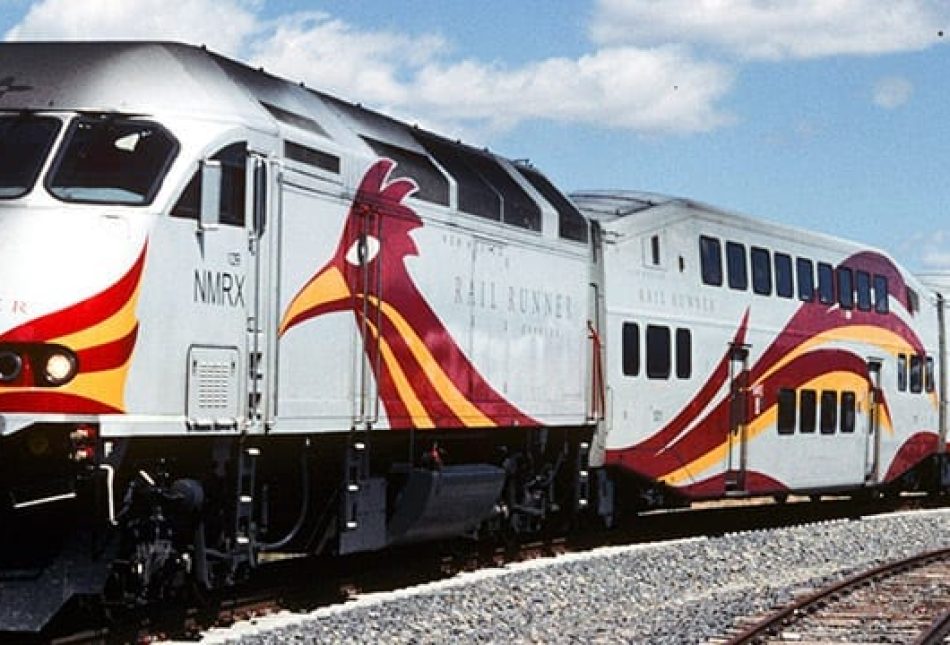Public Rail is Off Track

The taxpayer outcry against Mayor Martin Chavez’s proposed $270 million streetcar project succeeded in getting the City Council to come to its senses. Now it is time to turn our attention to broader questions of transportation planning.
The Mid-Region Council of Governments is now holding public meetings to discuss long-term transportation planning for the Albuquerque area.
Unfortunately, despite the Council of Government’s best efforts, central planning by government agencies suffers from inefficiencies that will make current problems of traffic gridlock even worse by the end of the Council of Government’s 2030 planning window.
The proposed $270 million streetcar, designed to serve one small area of the city at the expense of the rest of the city and state, was a perfect example of government planning gone awry. It was only stopped by the outrage of concerned citizens.
The state’s Rail Runner Express commuter train, however, is operational and is wasting massive amounts of taxpayer dollars for little public benefit. The Santa Fe extension – which includes the laying of some 20 miles of new track – now under discussion will waste millions of additional tax dollars.
Why do I say that the streetcar and Rail Runner are wastes of money? Is the Rio Grande Foundation anti-train?
No, advocates of free markets like the Rio Grande Foundation are not anti-train. Instead, we favor replacing the current system of central transportation planning with a system under which individual decisions made within a free and open marketplace are given the final say on transportation matters. What this means is that private investors and the profit motive should play a greater role, while politicians and planning agencies would see their roles reduced.
Trains should adhere to profits and losses as the best measurement of their utility. Unlike Albuquerque’s proposed streetcar and our Rail Runner – which, even staunch advocates freely admit, could never be profitable – some rail projects are designed with profits in mind.
Las Vegas, Nev., has a monorail system that was financed by investors rather than taxpayers. The Las Vegas Strip, with massive numbers of tourists and bad traffic, is about as different from Albuquerque’s Central Avenue corridor as night is from day, but that is the kind of density and traffic necessary for rail transit to be a viable proposition.
The Rail Runner also cannot be justified by any serious financial analysis. Phase 1 of the train from Belen to Bernalillo cost $75 million. Ridership on the Rail Runner recently was reported as averaging between 800 and 1,200 per day. Assuming an actual average of 1,000 passengers daily, that means that taxpayers are spending $75,000 for each person taking a one-way trip on the train. These are massive costs just to get the system up and running, not to mention future operating costs. Clearly, no private investor would embark on such a project and neither should the government do so with our tax dollars. At the very least, Gov. Bill Richardson and the Council of Governments should avoid spending $320 million more to extend the Rail Runner to Santa Fe before a thorough analysis is done.
If rail is not the answer, then what is? Understandably, many are skeptical that market forces can be applied to transportation, because Americans have been living under a socialized transportation system for more than 50 years.
In Europe, however, France, Spain and Italy are just a few of the largest nations that have large numbers of toll roads owned and managed by private investors looking to make a profit.
In the United States, private roads have been constructed from Virginia to California, and more recently, existing toll roads in Indiana and Chicago have been sold to private investors. As traffic congestion worsens in New Mexico, reliance on the private sector will be essential for our transportation network to function.
New Mexico is not alone in having a socialized transportation system. But with smaller populations and wide-open spaces, we need to understand that trains are even less likely to work here than in places like New York or San Francisco, where they are still heavily subsidized.
Instead of wasting money on big-budget rail projects, the Council of Governments should focus resources on proven means of moving traffic, such as roads and buses, while actively exploring ways to use the profit motive to ensure that limited transportation resources are allocated efficiently.
Gessing is president of the Rio Grande Foundation, which describes itself as “a nonpartisan, tax-exempt research and educational organization dedicated to promoting prosperity for New Mexico based on principles of limited government, economic freedom and individual responsibility.”

